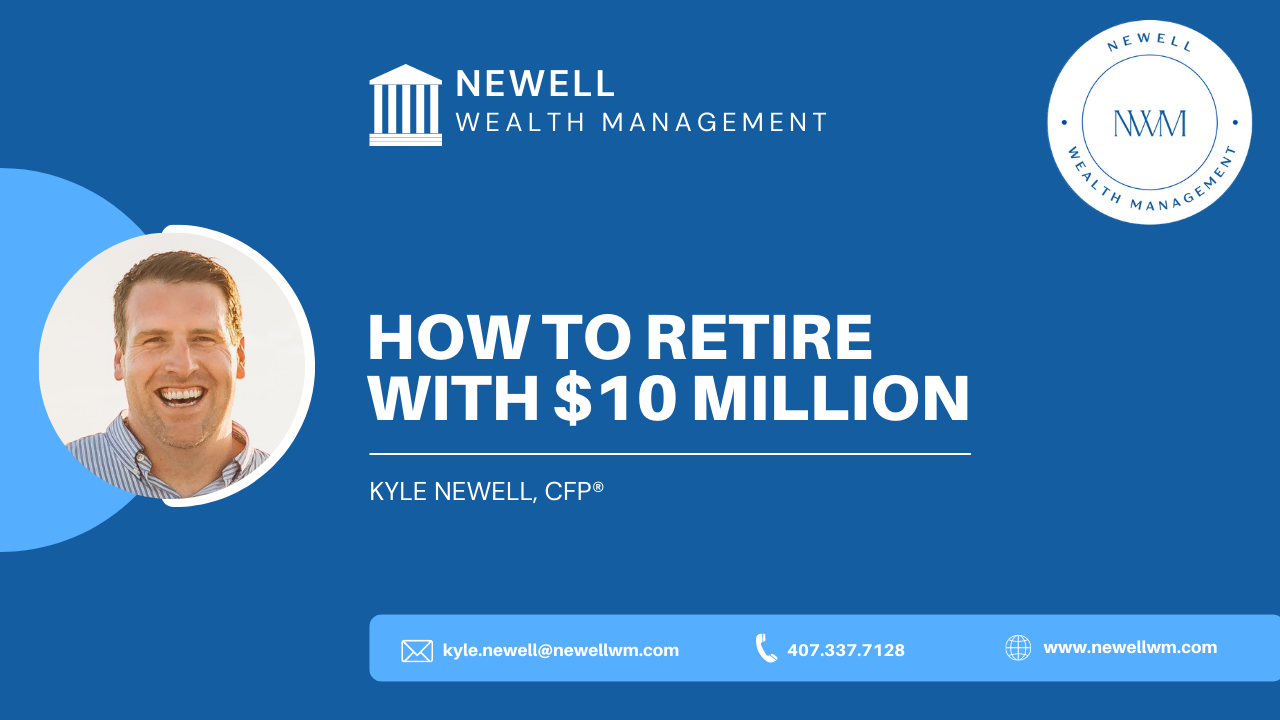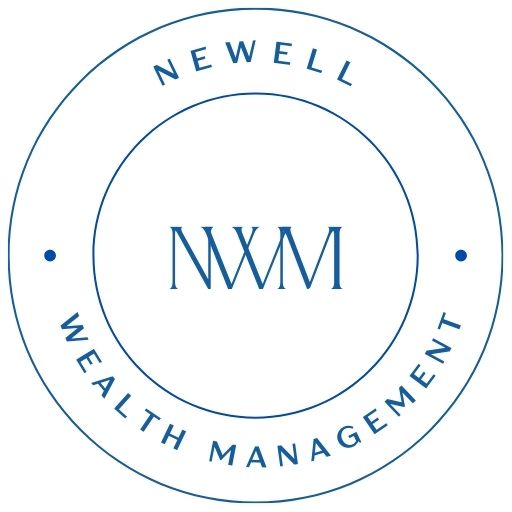How to Retire with $10 Million

Retiring with $10 million is something that a smaller segment of the population can do. Accumulating this amount undoubtedly takes time, effort, and lots of risk-taking. Knowing how to retire with $10 million and protect it takes strategy.
If you have succeeded in accumulating $10 million and are looking to retire, some particular challenges and responsibilities come with it. There are also lots of decisions. Making the right ones means understanding a few key points.
Be Clear About Your Objectives
When you retire with $10 million, or more, you are presented with a different set of decisions and, most likely, a different set of priorities. It’s vital to be crystal clear about your objectives when you’re at this range of wealth.
With this amount of wealth, you have an almost unlimited number of options available to you. Having many options can also bring anxiety and decision fatigue that can quickly become burdensome. Being clear about your objectives and priorities will cut through these feelings and help you make decisions.
Lifestyle
One of the first objectives for anyone retiring is to maintain their lifestyle. You don’t want to impede on the life you are accustomed to and how you’re used to living. At the same time, you may also have other goals and endeavors you want to venture into, which come with their own risks and challenges.
Giving Back
Perhaps you want to be able to give back in some form or fashion. Financial giving is one option. You may want to make an impact through mentoring or volunteering with charitable organizations. Combining both options is possible if you retire with $10 million.
Hobbies
During retirement, it’s pivotal to be clear about what your lifestyle needs are from an income standpoint and how you will fill your time when you’re no longer working. You may decide that retirement is the perfect time to focus on one or more hobbies you’re passionate about. Every hobby takes time, and the majority also take money.

These are just a few examples of priorities for retirement. Others may be things like
- Travel
- College Funds
- Boats, Vacation Homes, etc.
We’re simply scratching the surface, but you get the idea. You can also see how getting clear on your retirement objectives will help you decide what to do and, more importantly, what not to do.
The Reality of $10 Million in Wealth
Most people think having $10 million means life is carefree. The reality is that there is a certain level of burden when you retire with $10 million. Having more options means making more decisions. More decisions lead to decision fatigue.
More options can bring more risk because you may have to evaluate and think through things more in-depth than someone with less net worth. At the same time, the reality can be that your wealth will continue growing and potentially be double what it is when you retire. It seems counterintuitive, but I see it all the time as a financial planner.
Who is Responsible for the Wealth?
Aside from the obvious financial decisions, there is also the topic of who will be responsible for managing your wealth. Not only now but especially as you age. Who will be making all of the decisions for you? How well do they know your situation and your priorities?
Perhaps it’s your spouse. Who will help them make decisions if you are not able? For example:
- Which investments to buy or sell
- Where is the income coming from
- Paying taxes or bills
If it’s your child(ren), what sort of burden will they have when managing what you have left behind? Are they ready and capable of doing the job?
All of the day-to-day maintenance of your life requires someone to be responsible. Thinking through who will have that responsibility when you cannot do so or have passed away is essential. It’s imperative to know the possible ramifications to them and their situation.
Position yourself to plan for the responsibilities accordingly. When you retire with $10 million or more, you will most likely involve attorneys, financial planners, and others to determine the best person or people to take over that amount of wealth when you no longer can.
Taxes
No financial conversation is complete without looking at taxes. It’s relatively certain that taxes will be part of your ongoing life. When you retire with $10 million, you need to consider how to position your assets. All sorts of investment vehicles provide tax-efficient or potentially tax-free returns depending on the money’s location.
Is the money mostly in retirement accounts like a 401k or IRA? Split between your and your spouse’s retirement accounts? In some other type of non-retirement account?
It’s imperative to know
- How the assets are taxed
- When to take income
- When to generate or defer taxes
When you retire with $10 million, there are a lot of potential tax ramifications. You want to be tax efficient in the year you’re in. Focusing on the taxes now is essential, as are the taxes for later.
Estate Taxes
Having $10 million also brings up the topic of estate taxes. Estate taxes have changed. Leaving a sizeable net worth or even simple retirement accounts like a 401k or IRA will likely be taxable to your children. A married couple with a $20 million+ net worth must be concerned with estate taxes.
Understand the tax ramifications. Create a prudent strategy to manage taxes now and later. There are tools and strategies you can use to mitigate taxes, protect your wealth, and be tax efficient now and in the future. Using them can give your wealth a potentially high probability of maintaining where it is and growing.
Protecting Your Wealth
Most people planning to retire with $10 million want to protect what they have. By protecting, I mean trying to keep at least that much in your net worth throughout your lifetime.
Realize that what got you to this point will probably not continue to carry you through retirement. You likely took some significant risks to accumulate $10 million in net worth. Now that you have it, the strategy becomes more about protecting it.
Acquiring wealth and protecting it are two different strategies. Protecting your wealth may involve incorporating assets you’re less familiar with. These assets may have different terms than you’re used to. It can also use a “plain vanilla” process of finding assets that provide nice, solid returns with less risk than you used to get here.
None of us knows what may happen in the future. Having a diverse mix of assets is valuable. Diversify smartly with a portfolio of this size. Take risks where you know you can. Protect where you can. Much of risk and protection revolves around positioning your portfolio appropriately for
- How much cash flow you need on an ongoing basis
- How much income you need year-to-year
- Where is the money coming from
Choosing the right strategy to protect the possible downside and give you some growth is imperative when you retire with $10 million or more.
Key Points Recap
We’ve discussed five things to help you retire with $10 million in net worth.
- Objectives
- Realities
- Responsibilities
- Taxes
- Strategy
Covering these critical areas in your financial planning will help you manage your wealth during your lifetime and beyond. I regularly work with large net-worth clients on these strategies and planning by bringing in other experts and coordinating a team approach.
Important Information
Newell Wealth Management, LLC (“NWM”) is a registered investment advisor offering advisory services in the State of FL and in other jurisdictions where exempted. Registration does not imply a certain level of skill or training. The presence of this website on the Internet shall not be directly or indirectly interpreted as a solicitation of investment advisory services to persons of another jurisdiction unless otherwise permitted by statute. Follow-up or individualized responses to consumers in a particular state by NWM in the rendering of personalized investment advice for compensation shall not be made without our first complying with jurisdiction requirements or pursuant an applicable state exemption.
All written content on this site is for information purposes only and is not intended to provide specific advice or recommendations for any individual. Opinions expressed herein are solely those of NWM, unless otherwise specifically cited. Kyle Newell and NWM are neither an attorney nor an accountant, and no portion of this website content should be interpreted as legal, accounting or tax advice. Material presented is believed to be from reliable sources and no representations are made by our firm as to other parties’ informational accuracy or completeness. There is no assurance that the views or strategies discussed are suitable for all investors or will yield positive outcomes. Investment involves risks including possible loss of principal and unless otherwise stated, are not guaranteed. Any economic forecasts set forth may not develop as predicted and are subject to change. All information or ideas provided should be discussed in detail with an advisor, accountant or legal counsel prior to implementation.
